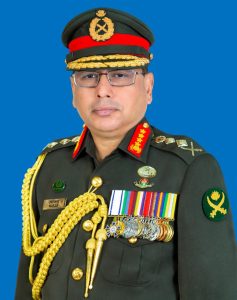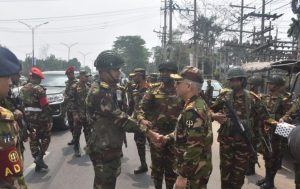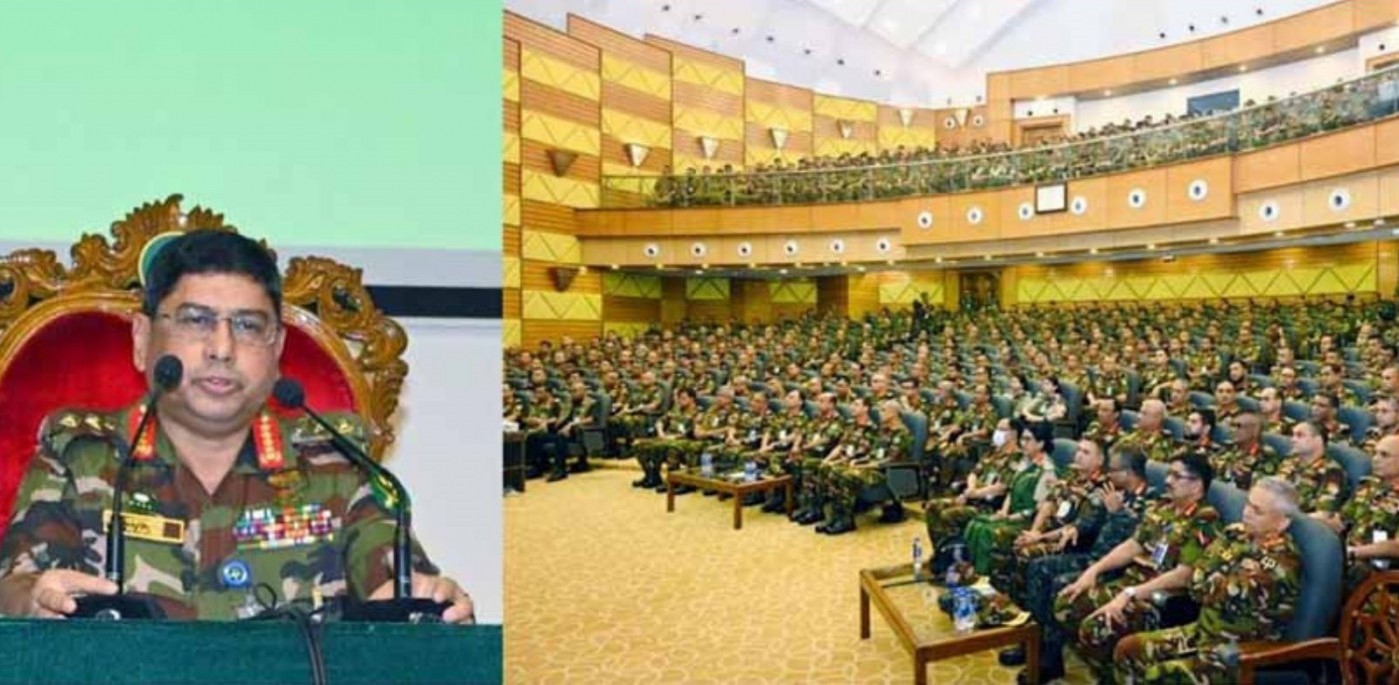The ongoing nationwide deployment of the Bangladesh Army, which began on July 19 last year, has now extended beyond 10 months—marking the longest continuous army presence without a declaration of martial law or a state of emergency.
According to Chief of Army Staff General Waker-Uz-Zaman, the deployment is expected to continue for at least another seven to eight months from now, if the general elections are held by December as he has suggested, sources concerned said.
He, however, indicated that the army may remain deployed for several weeks after the polls to ensure law and order and a smooth political transition, according to the highly placed sources.
General Waker made these comments during his fifth “Officers’ Address” on Wednesday, since taking command in June 23, 2024.

A significant topic during the meet was the military’s eventual return to barracks following the formation of an elected government.
Although he voiced concern that “extended army deployment for internal security could undermine national defence,” the army chief remarked that, due to ongoing instability, “there is no scope for an early withdrawal.”
This view was first signalled in his second “Officers’ Address”, held on August 20, 2024, just days after the fall of the previous government. It was preceded by a “Darbar”—his first and only since assuming office—attended by all members of the Bangladesh Army.
Addressing the meetings, General Waker-Uz-Zaman had indicated that the army’s role in aiding civil administration might extend longer than initially expected due to practical considerations. “I do not see a scope for an early withdrawal,” he reportedly had told the gatherings.
As in the case of Wednesday’s meeting, during a similar “Officers’ Address” on March 24, 2025, senior army officers called for the swift restoration of democracy through general elections, expressing a desire to return to the barracks and refocus on their primary responsibilities, the sources added.
The first Officers’ Address of General Waker, held on August 3, 2024, was particularly consequential.
In that speech, he communicated the army’s decision to refrain from using lethal force against mass protesters, which played a critical role in the resignation of then Prime Minister Sheikh Hasina in less than 48 hours.
His third address, delivered on January 30, 2025, emphasised maintaining discipline, neutrality, and public confidence as preparations for the general election advanced. He reiterated the military’s responsibility to support the civil administration.
In all five “Officers’ Addresses” and the sole “Darbar,” the chief focused on the transition to democracy and a return to the barracks.

The army was initially deployed by the Hasina government on July 19, 2024, amidst escalating student-led protests against the reinstatement of a quota system reserving 30 percent of government jobs for descendants of freedom fighters. Following a Supreme Court ruling on July 5 that restored the quota, the protests intensified and spread nationwide, leading to violent clashes and severe repression.
The government’s response—including nationwide curfews and “shoot-on-sight” orders—resulted in over 1,400 reported deaths.
The army’s refusal to fire on protesters, as confirmed by the August 3 address, led to Sheikh Hasina’s resignation on August 5.
Since deployment, the armed forces have been granted executive magistracy powers four times: initially on September 17, 2024, followed by renewals on November 16, 2024; January 12, 2025; and May 14, 2025—each for 60-day periods.
General Waker has repeatedly urged his forces to remain politically neutral and to carry out their future electoral duties with honesty and professionalism. Wednesday’s “Officers’ Address” was no exception.


